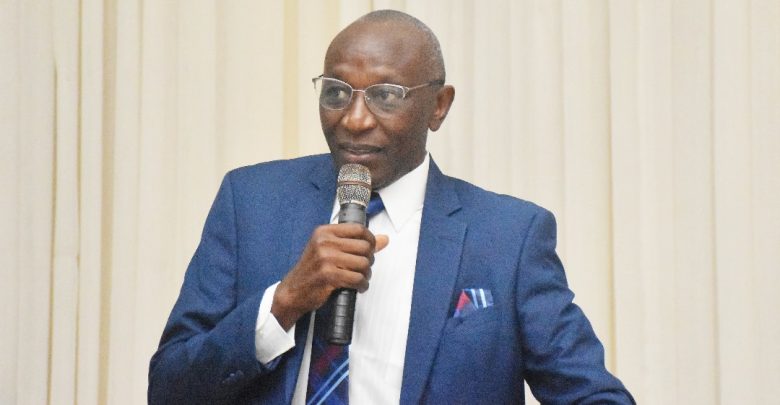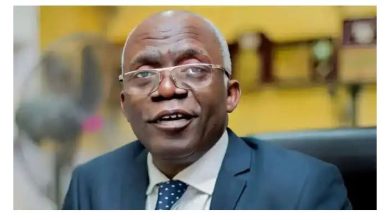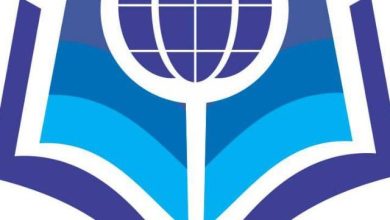
Nigeria is currently maintaining the first spot in breast cancer disease in the West African region. In the same vein, the country is also second only to the neighbouring Niger Republic on the issue of infant mortality.
These statistics came to the fore in a keynote address presented by a university Don, Prof Noel Wannang, a renowned Pharmacology and Clinical Pharmacist during the Pharmacy Week seminar held by the Pharmaceutical Society of Nigeria, Akwa Ibom State chapter on Thursday in Uyo, the state capital.
Addressing participants at the event with the theme: “Pharmacists Strengthening the Health Systems,” Prof. Wannag, who is also a council member of the West African Post-graduate College of Pharmacy, lamented that health outcomes remain poor in Nigeria despite higher expenditure since 2001 stressing that better outcomes are seen in countries with equivalent and lower expenditure.
According to him, “life expectancy in Nigeria now stands at 60 years for males and 64 years for females, infant mortality stands at 54. 74 deaths per 1000 live births which places Nigeria only second to Niger republic.”
The Don highlighted the non-natal mortality rate globally and with 640 daily deaths, Nigeria ranks second to India in the world.
He further added, “Maternal mortality rate stagnated at 290,000 annually since 2015, it is sad to say that India and Nigeria rank for 1st and 2nd respectively”.
Related: ARISE Agenda Will Accelerate A’Ibom Development – Eteidung Edem
He urged Pharmacists to strengthen the health system in ways that achieve more equitable and sustainable improvements to health outcomes with required technical and political knowledge and action.
According to him, “Pharmacists should transform practice, science and education and workforce. They should acquire leadership skills to lead and change the healthcare system in Nigeria.
“They should have overall interest to develop a model for patient safety adding that there is no health without drugs or hospital with prayers department”
Prof. Wannag advocated for a strong health system with effective policies, oversight and accountability with special attention to system design and appropriate regulation.
He opined, “Pharmacists in the world must participate in the development of the framework that advances the delivery of effective and safe healthcare and ensure access to high-quality medicines”.

He noted that a strong health system needs adequate funds so that people can use the services they need and afford to pay for those services.
The State Chairman of the Pharmaceutical Society of Nigeria, Pharm. Abasiama Uwatt, who highlighted the importance of advocacy in ensuring the success of the job of pharmacists, explained that Akwa Ibom State will soon have a drug information centre.
Read Also: Ibesikpo Asutan LG Partners With Foundation for More Development
According to her, “Drug Information Centre is one of the requirements from World Health Organisation from developing countries. In Nigeria, currently, we have very few and Akwa Ibom State does not have a drug Information Centre for now.
She further intoned, “What the centre offers is enormous, it is an avenue for communication and publicity, there will be publications and enlightenment campaigns, and it will also serve as a point for research and critical support management.
“The drug Information centre can help us collate data, one of the biggest challenges we have in Nigeria is data. “The Drug Information Centre will help in policy-making, and research and help in giving direction to our health drive. Akwa Ibom people will be the biggest beneficiary when established”
On the challenges faced by Pharmacists, the chairman explained, “They are enormous. We are grossly underutilized, we are trained in so many areas but outside society, it is difficult for us to fit in properly in the scheme of things, that is because there is an overlap of functions in the health sector which is not good. A patient seeking healthcare intervention should be able to get the best from every healthcare worker”.
She further averred “There is a challenge of pharmacists importing practically every raw material which we call active pharmaceutical ingredients, we import it with high foreign exchange which keep soaring the value of the products well beyond the reach of the common man on the street to access basic health care and high cost of drugs will hamper effective health care coverage”.
The state chairman acknowledged the issue of the pharmacy consultancy cadre as another worrisome development, “It has been on for some time and it is being difficult to accept though accepted in some States and at the Federal level but yet to be implemented”.
“Therefore, you have pharmacists who have finished the basic training, go ahead to specialize but are still regarded as fresh graduates. We have consultants in the fields of public health, clinical pharmacy, and community pharmacy but they are not utilized and are still regarded as first-degree holders. “That is a big challenge facing us. We also have the “Japa” syndrome affecting pharmacists as poor remuneration brings poor recognition, and we have pharmacists passing out without a place to do their mandatory one-year internship which is part of their training. We have also had unfavourable policies that do not support local capacity building”.
On what she hopes to achieve, she reiterated, “As an administration, we set out to achieve three main things, one is to complete the drug information Centre and our secretariat, increase advocacy and our presence at the policy table and be part of the people who formulate policies for our association, over the years non-Pharmacists have been doing that. We are doing a lot to create awareness of the functions of pharmacists. It may surprise you that even some well-schooled people do not know the role of pharmacists. In the last year, we participated in the development of the ARISE Agenda blueprint. For the first time, the government recognized our worth and contributions. We are moving in the right direction”.
In his goodwill message, Mr Adedoyin Nurudeen, Deputy Commandant Nigeria Law Enforcement Agency (NDLEA) said Akwa Ibom Pharmacists body must work with NDLEA to control, supervise and cut off the supply of illicit drugs by reducing the demand for illicit drugs, engage in the enlightenment of the populace on the psychological, physical and social effects of psychopathic substances in the body, since we know the consequences of these drugs to the body system.
“Drugs demand reduction calls for multi-sectorial approaches involving qualified personnel like pharmacists for education on health issues to achieve the needed target and result. There should be a balanced approach between illicit drug demand reduction and suppression by pharmacists,” he added.
Earlier in a welcome address, the chairman planning committee of Pharmacy Week 2023, Phar Dighenyong Sam Udiminune had described the health system in Nigeria as not only weak but asphyxiated.
He listed weak governance, institutions, structures and operational inefficiencies as basic causes of Nigeria’s deteriorating health care system.
The occasion was chaired by Dr Chris Eromosele and the event was graced by the Governor of Akwa Ibom State, Pastor Umo Bassey, who was represented by the Senior Special Assistant to the Governor on Health/ Personal Physician to the Governor, Dr Emmanuel John and the Speaker of the Akwa Ibom state House of Assembly, Rt. Hon. Udeme Otong, ably represented by the Chairman, House Committee on Health, Rt. Hon. Moses Essien.
Other dignitaries include the Dean Faculty of Pharmacy, University of Uyo, Prof. Emmanuel Attih, the Director of Pharmaceutical Services, Hospital Management Board, Pharm. Ubam Etim and the Director of Pharmaceutical Services, University of Uyo Teaching Hospital, Pharm. Bella Etukudo.




